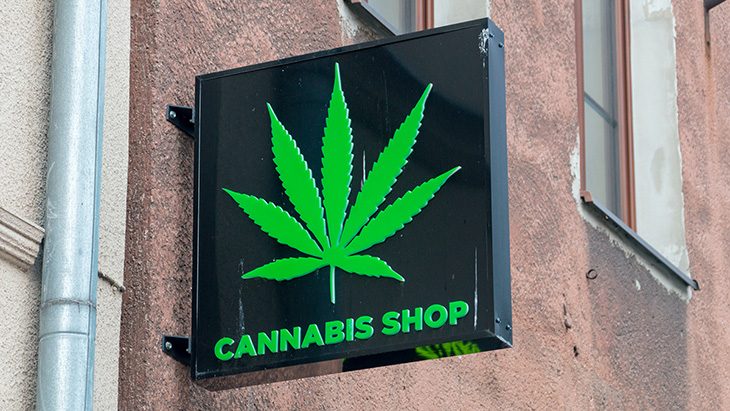
The greater availability of cannabis access via storefront dispensaries and retailers is associated with declines in opioid-related deaths, according to an analysis of county level data published in the British Medical Journal (BMJ).
A pair of researchers affiliated with the University of California at Davis and with Yale University in Connecticut assessed the relationship between the volume of storefront dispensaries and opioid-related mortality rates in legal marijuana states over a four year period (2014-2018).
Consistent with prior ecological studies, such as those here, here, and here, investigators “found that increased medical and recreational storefront dispensary counts are associated with reduced opioid related mortality rates during the study period. These associations appear particularly strong for deaths related to synthetic opioids such as fentanyl. Given the alarming rise in the fentanyl based market in the US, and the increase in deaths involving fentanyl and its analogs in recent years, the question of how legal cannabis availability relates to opioid related deaths is particularly pressing. Overall, our study contributes to understanding the supply side of related drug markets and how it shapes opioid use and misuse.”
The publication of the study comes just days after a team of Canadian investigators similarly reported that retail marijuana legalization in that country preceded a “marked decline” in the volume of opioids prescribed to patients enrolled in both public and private health care plans.
Days earlier, two additional longitudinal studies separately reported that patients provided medical cannabis for chronic pain significantly reduce or eliminate their use of opioids over time. In the first study, participants’ mean opioid dosage fell by 78 percent within six-months after initiating cannabis therapy. In the second study, subjects accessing medical cannabis exhibited “opioid-sparing effects” over a twelve-month period.
Commenting on the available data, NORML’s Deputy Director Paul Armentano said: “The data to date is consistent and persuasive: For many pain patients, cannabis offers a viable alternative to opioids, potentially improving their quality of life while possessing a superior safety profile.”
Full text of the study, “Association between county level cannabis dispensary counts and opioid related mortality rates in the United States: panel data study,” appears online here. Additional information is available in the NORML fact-sheet, “Relationship Between Marijuana and Opioids.”

